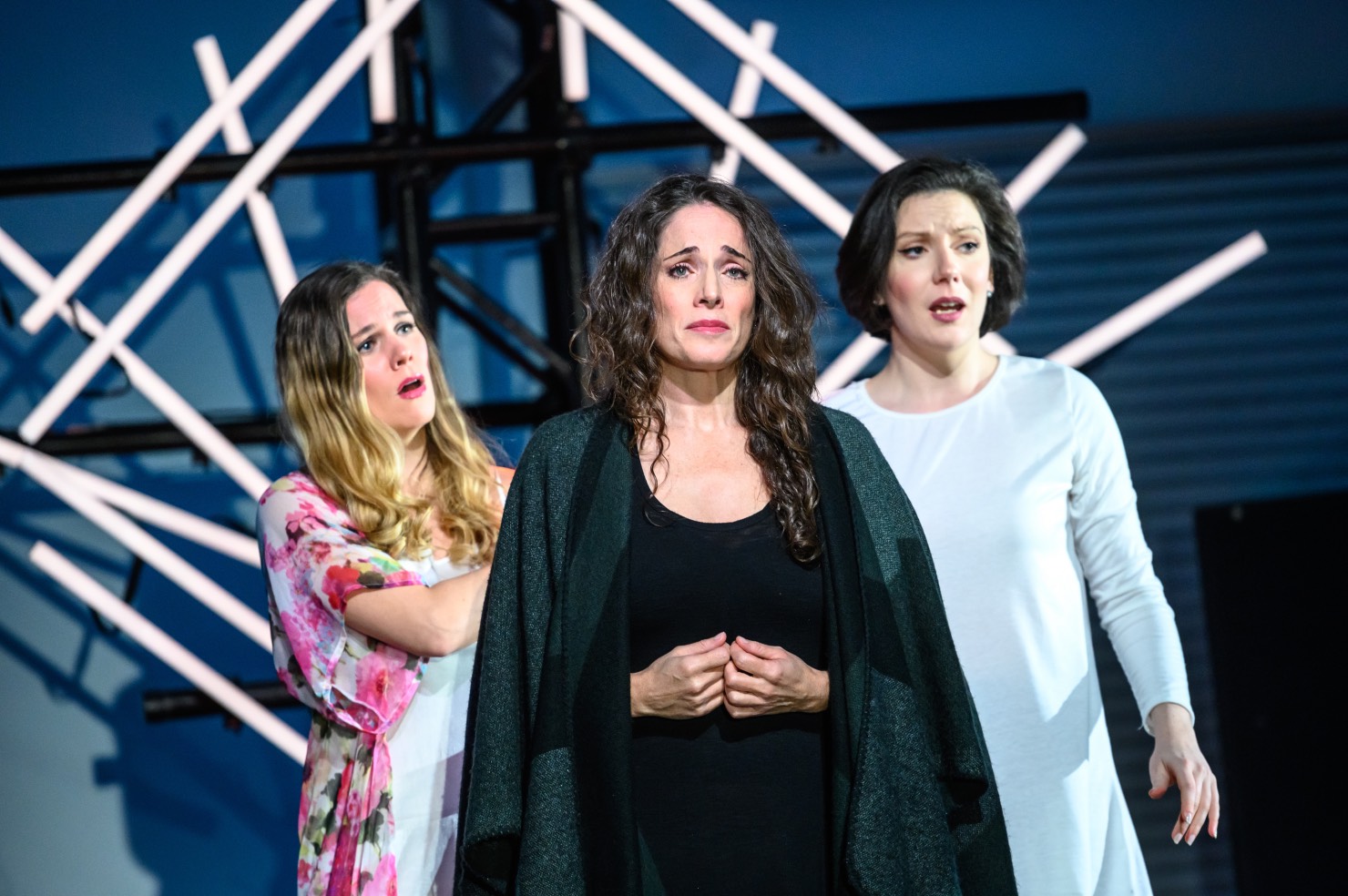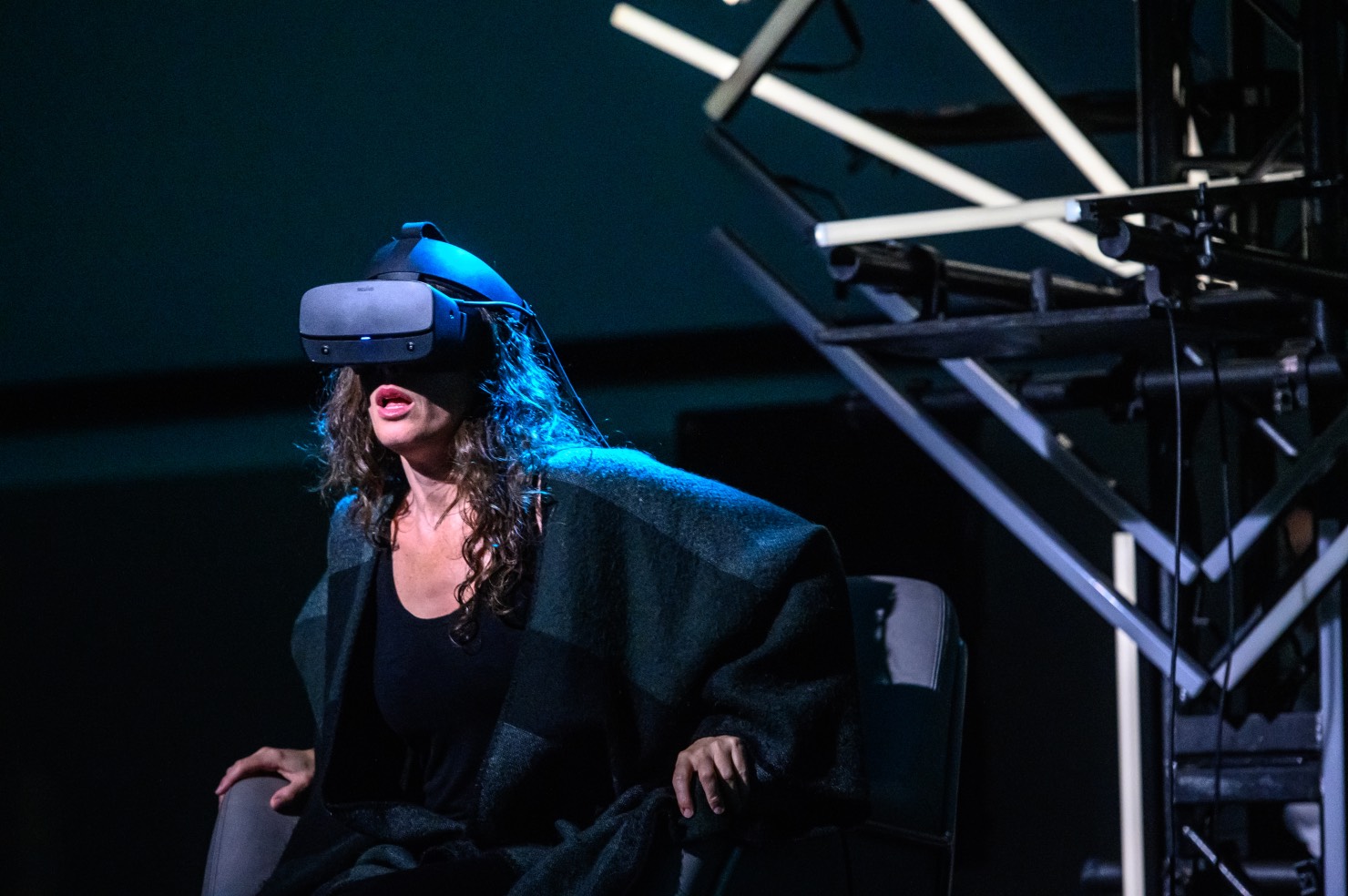
TAP:EX Augmented Opera lives up to its name
ReviewFrom the pianoforte to the iPod, the music world is constantly changing, and now we’re staring down the barrel of the next great leap in technology. Augmented and virtual reality appear to be that next step. Both have been in the news quite a bit over the past few years - and rightly so. Augmented reality became a household term when a little app called Pokémon Go hit the market, and now we’re seeing more and more people springing for their own VR headset for use at home. Every time there is a leap in technology, our entertainment changes.
Tapestry Opera, Canada’s leading presenter of strictly contemporary opera works, kicked off their 40th anniversary season with the latest instalment of TAP:EX. TAP:EX Augmented Opera is a study of human memory explored through both AR and VR.
Using a clean line and masterful dynamics, her joyful singing was entrancing.
This show needed somewhere unique to play in, so Tapestry teamed up with Sidewalk Labs - the smart organization that will be transforming a portion of Toronto’s downtown waterfront area. Sidewalk has an aim to bring in over forty thousand jobs and an influx of $14 billion (with a “b”) to the city of Toronto by 2040, while maintaining a green footprint and utilising cutting edge technology - enter the VR connection. Tapestry hosted the show in the main viewing and presentation centre, which was a perfect fit for the set of the show.
Co-created by Debi Wong of re:Naissance Theatre in Vancouver and composer Benton Roark and co-directed by Wong and Tapestry’s Artistic Director Michael Hidetoshi Mori, Augmented Opera tells the story of Elysium, a futuristic company that uses virtual and augmented reality along with another bastion of the future - artificial intelligence - to guide you through your memories in order to replicate a perfect afterlife.

Our Silicon Valley launch presenter played uncannily by Wong, finds a ready volunteer in Eurydice, played by Lauren Segal. The audience is then asked to follow along on Eurydice’s journey by donning our own “headsets” (black sleep masks emblazoned with the “Elysium” logo) and the journey begins in blackness.
I have to say this was a truly unique theatrical experience, starting the show off in a cacophony of disjointed sound clips played on bluetooth speakers being carried through the aisles. The sounds were mixed with those of Segal, soprano Vanessa Oude-Reimerink and mezzo-soprano Lindsay Promane, with Michael Shannon and composer Roark and even scents to stimulate the swirling of memories, until we’re asked to open our eyes and watch as Eurydice’s possible afterlives play out before us, almost duelling for her to choose.
The score is evocative and soothing and supported the singers while not being a competing factor.
Promane and Oude-Reimerink embody two possible outcomes. While both seem to be at points of the highest emotional output for Eurydice, Promane’s seems to evoke the latter stages (perhaps shortly after the end) of Eurydice’s one true love. Promane’s dark mezzo quickly and easily moves between registers and has a surprising brightness to the top end. Oude-Renmerink starts her scenes off with a refrain of “I said yes!” over and over so we’re pretty clear where in Eurydice’s past this is hailing from. Oude-Reimerink’s bright, easy soprano was given the more conventionally lyrical writing of the two and was more than deftly suited to the task. Using a clean line and masterful dynamics, her joyful singing was entrancing.

Segal’s brighter mezzo skirts the difference, and when the women sing in ensemble (either various duet combinations or in trio) the blend is exciting, truly difficult to decipher where one voice ended and another began. In the final scene of the show we see a preview of what the AI has compiled, and while wearing a VR helmet, Segal sings a soaring finale as we watched her “soar” in in the land of her creation. Her incredible range is on full display as she seems to effortlessly sing this somewhat difficult score.
Roark’s work makes use of live piano and synth. The score is evocative and soothing and supported the singers while not being a competing factor. I still have problems, aurally, when amplified orchestrations are coupled with acoustic elements. Perhaps it’s my own thing, but I always say when using amplified instruments, everything should be going through a mixer. That being said, pianist Michael Shannon led the production through with a deft hand. His collaborative piano expertise enabled him to play both lyrically and truly make music with the singers on stage.
As opera, and theatre in general, is forever evolving with the times, it’s quite exciting to see new, cutting-edge approaches being used so successfully.
TAP:EX Augmented Opera plays at Sidewalk Labs until the 23rd.


Comments